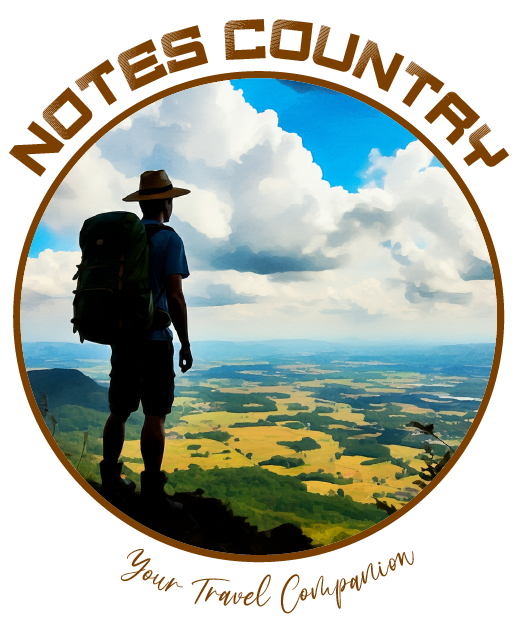South Korea, a captivating blend of ancient traditions and cutting-edge modernity, offers visitors an unforgettable journey through time and culture. From the bustling streets of Seoul to the serene temples nestled in misty mountains, South Korea is a country of fascinating contrasts. Renowned for its technological advancements, vibrant pop culture, exquisite cuisine, and rich history, South Korea provides a diverse range of experiences for every type of traveler. Whether you’re exploring centuries-old palaces, indulging in street food at night markets, hiking through stunning national parks, or immersing yourself in the world of K-pop and K-dramas, South Korea promises a unique adventure that will stimulate all your senses.
Must-see attractions
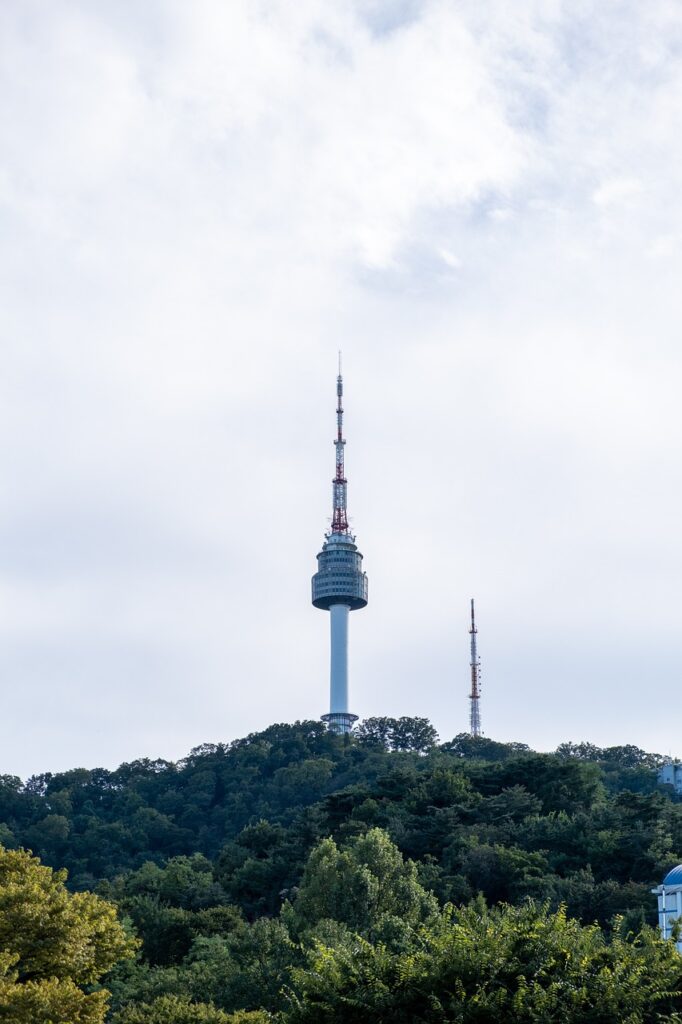
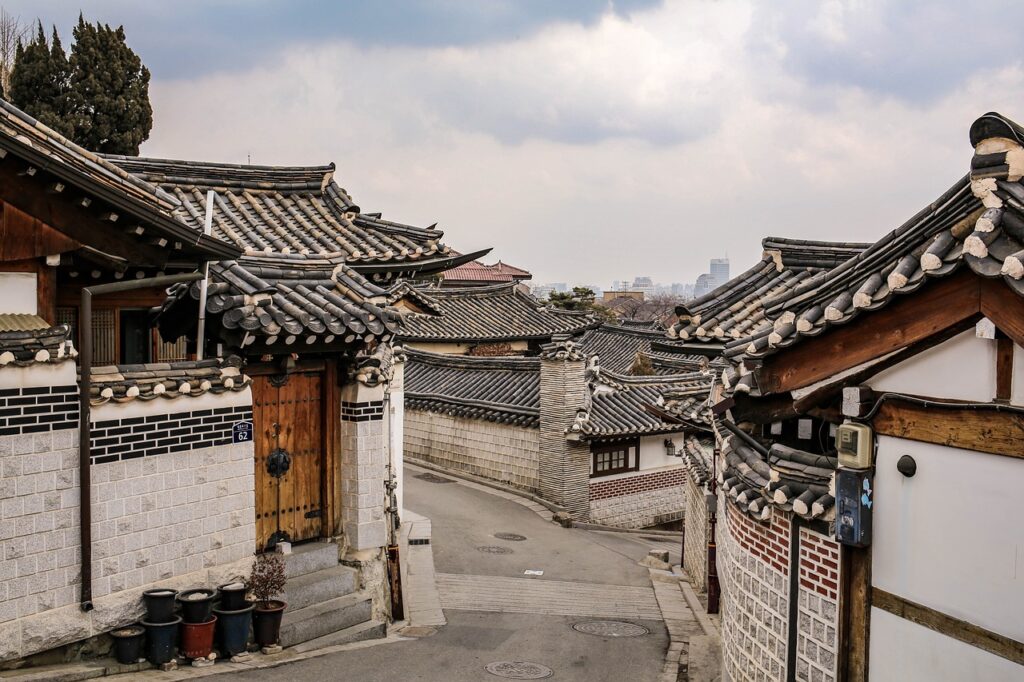
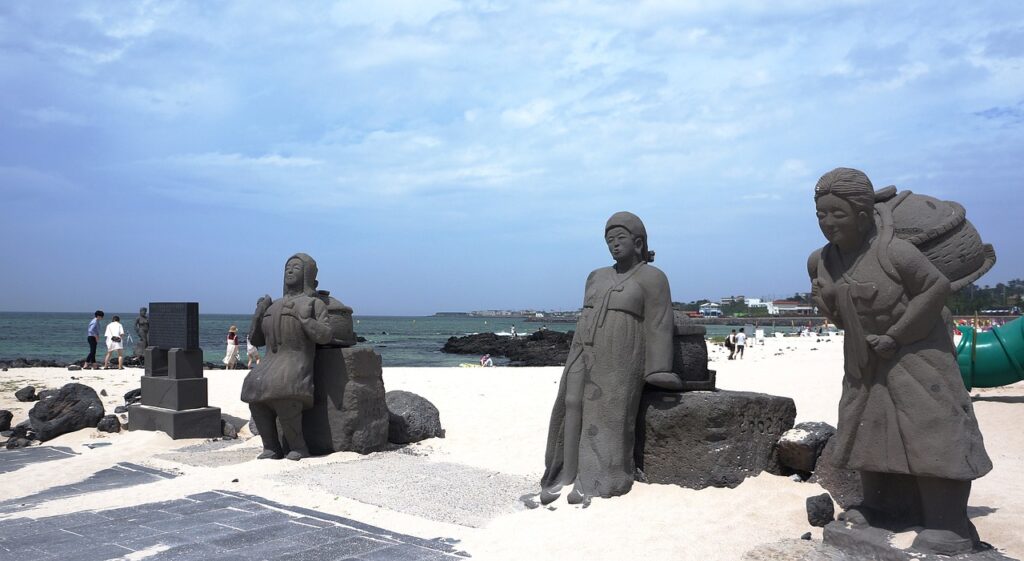
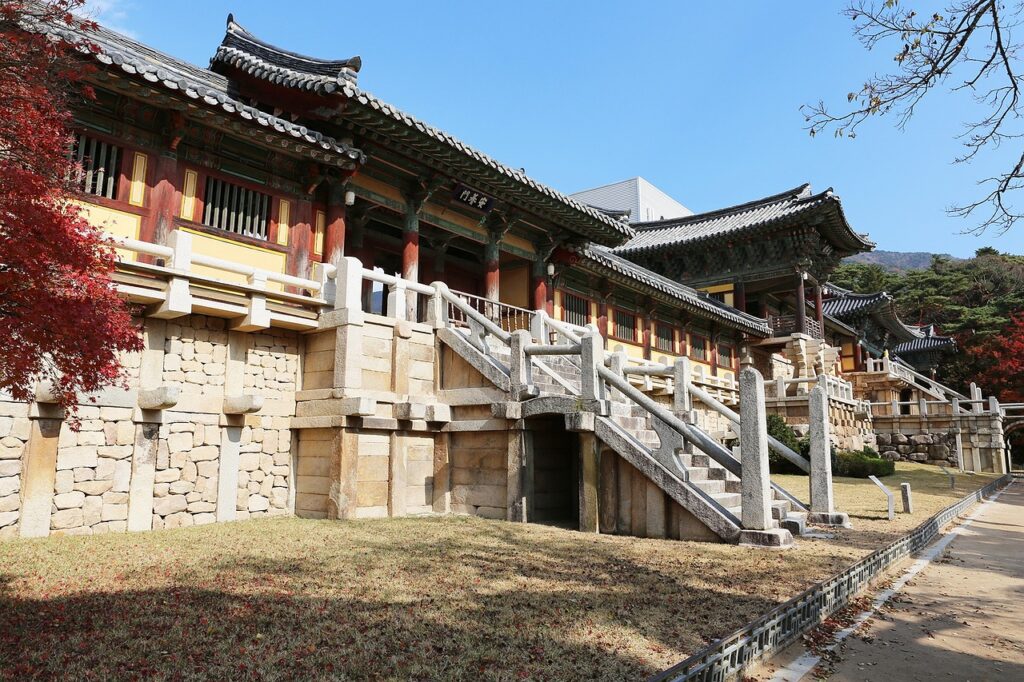
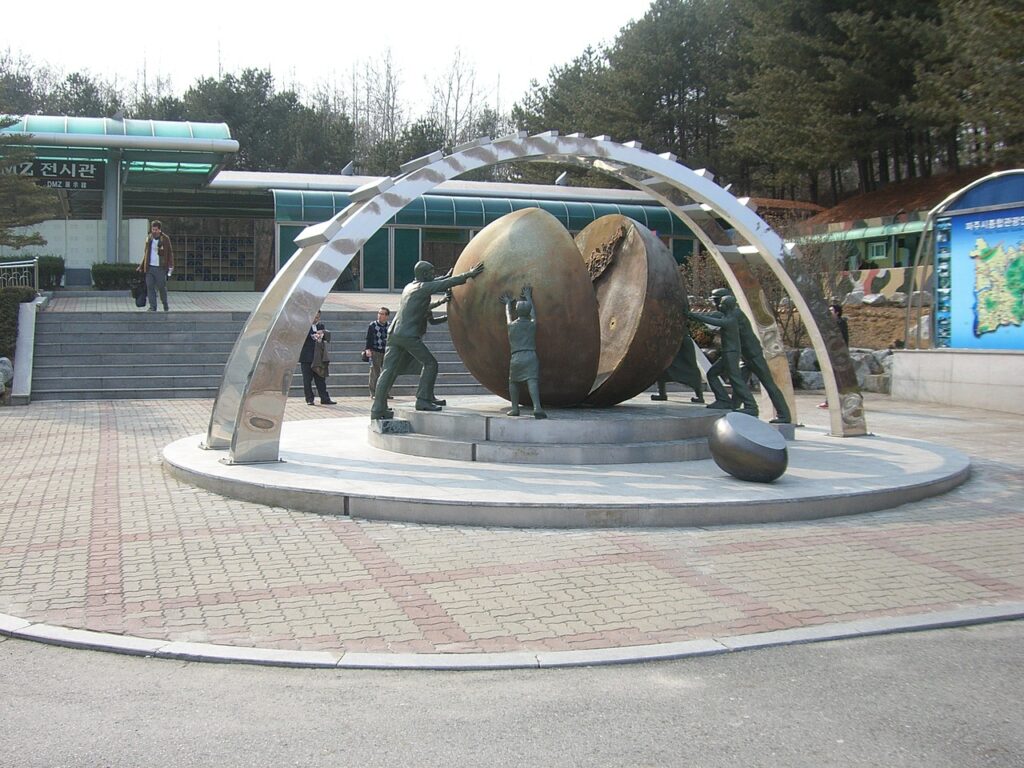
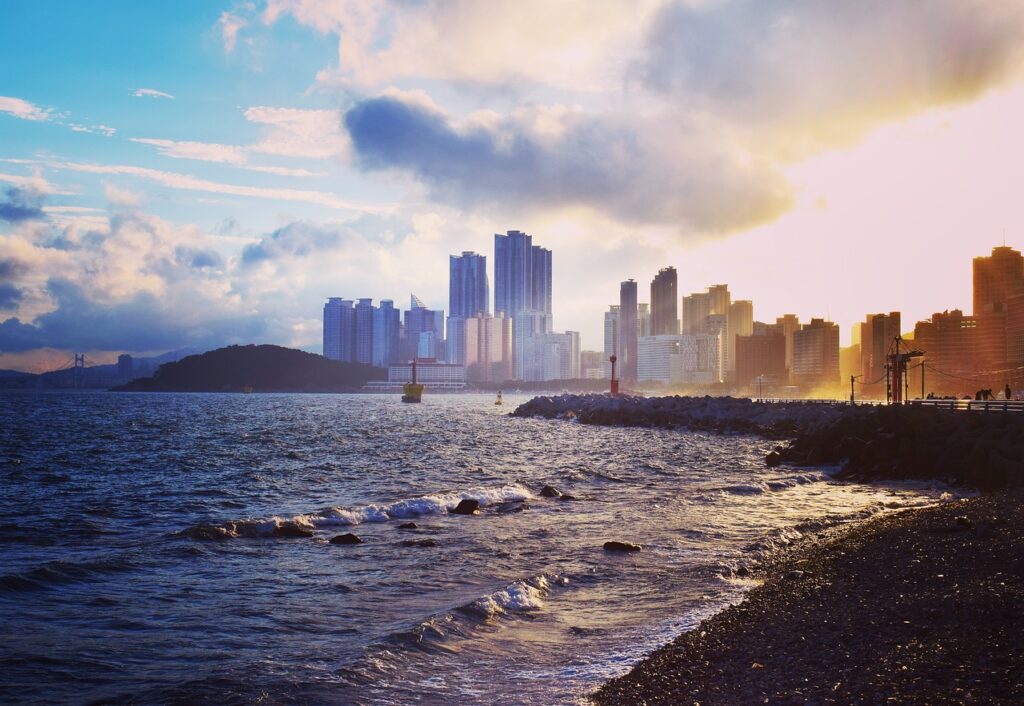
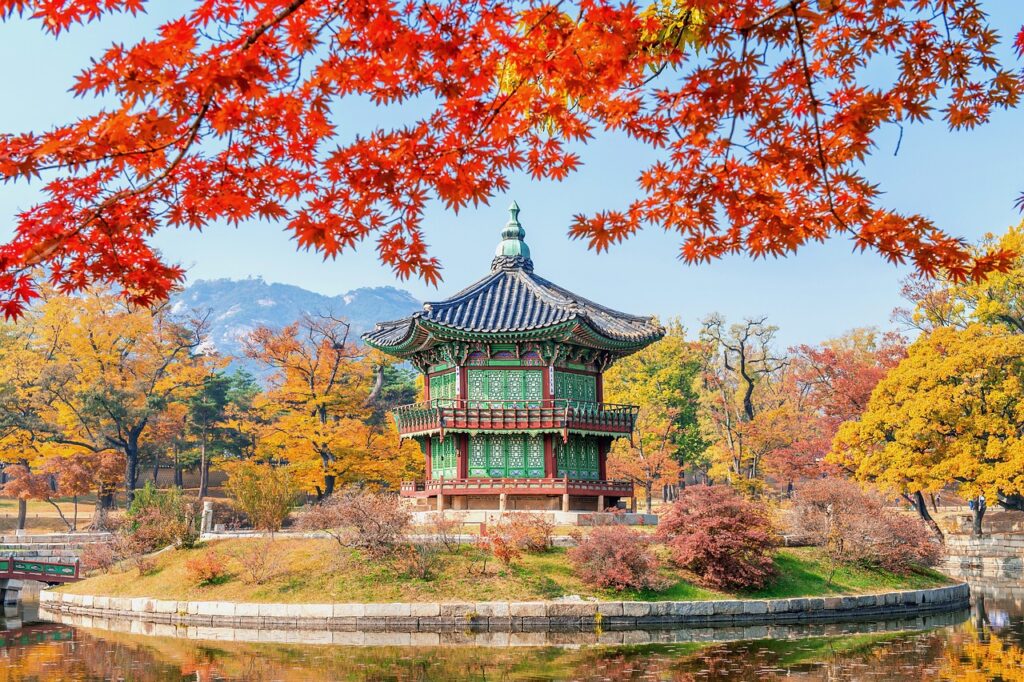
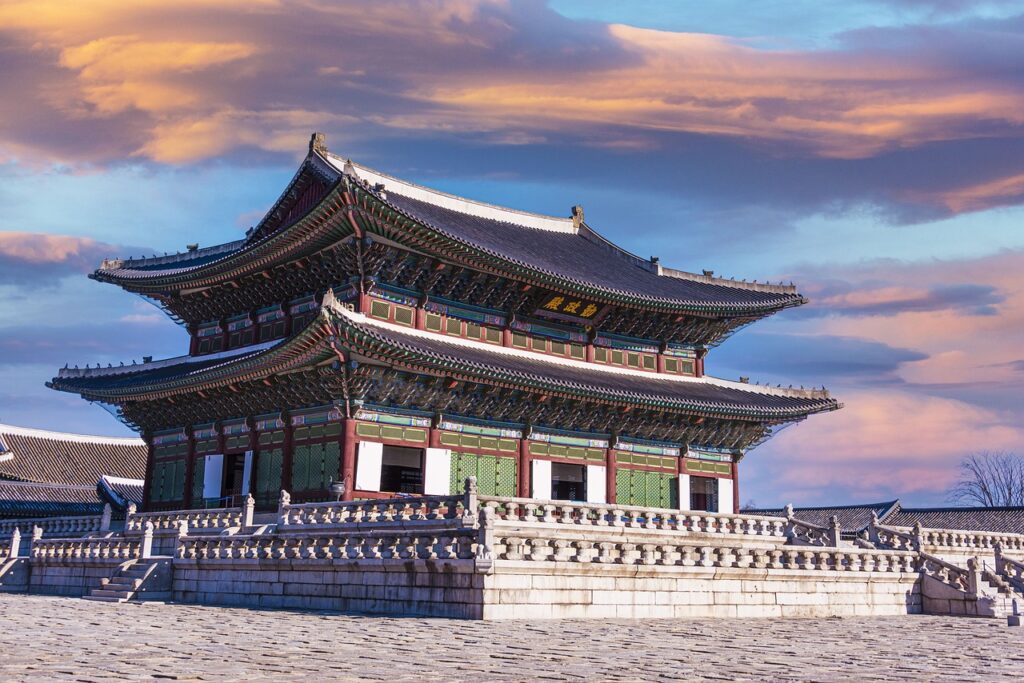
- Gyeongbokgung Palace, Seoul: The largest of the Five Grand Palaces built during the Joseon Dynasty, offering a glimpse into Korea’s royal past.
- Namsan Seoul Tower: An iconic landmark providing panoramic views of Seoul, especially beautiful at night.
- Bukchon Hanok Village, Seoul: A traditional Korean village featuring hundreds of hanok (traditional houses) that have been preserved to show a 600-year-old urban environment.
- Jeju Island: Known as the “Island of the Gods,” famous for its volcanic landscape, beaches, and unique culture.
- Bulguksa Temple, Gyeongju: A UNESCO World Heritage site, this temple complex is a masterpiece of Buddhist art from the Silla period.
- DMZ (Demilitarized Zone): The border area between North and South Korea, offering a sobering look at the division of the Korean peninsula.
- Busan’s Haeundae Beach: One of Korea’s most famous beaches, known for its golden sand and clear waters.
- Seoraksan National Park: Renowned for its breathtaking mountain scenery, hiking trails, and Buddhist temples.
Popular cities and regions
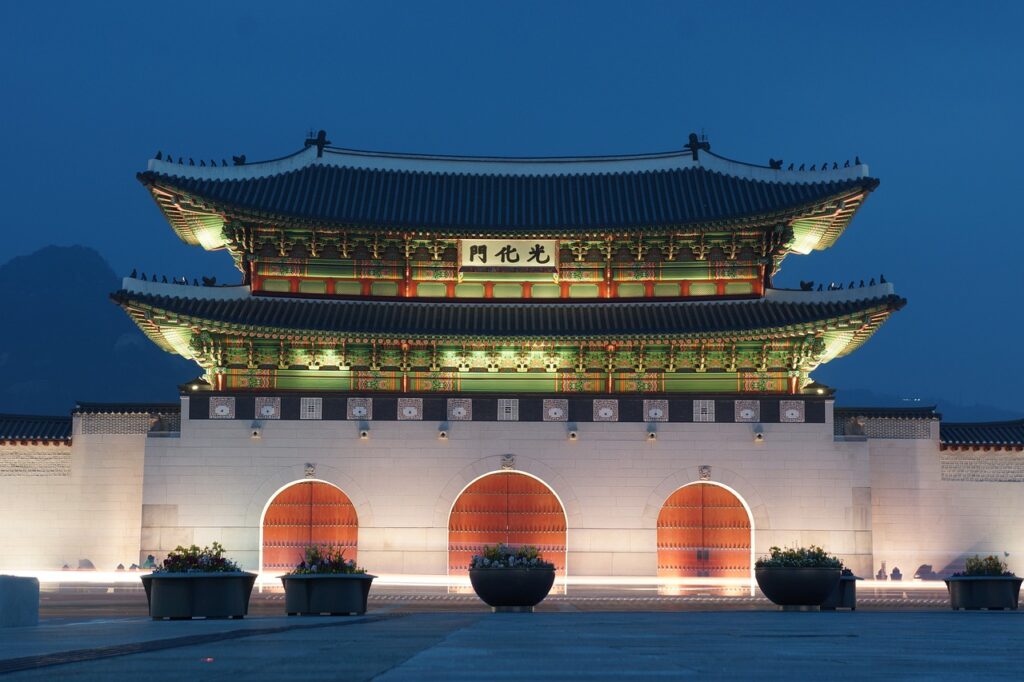
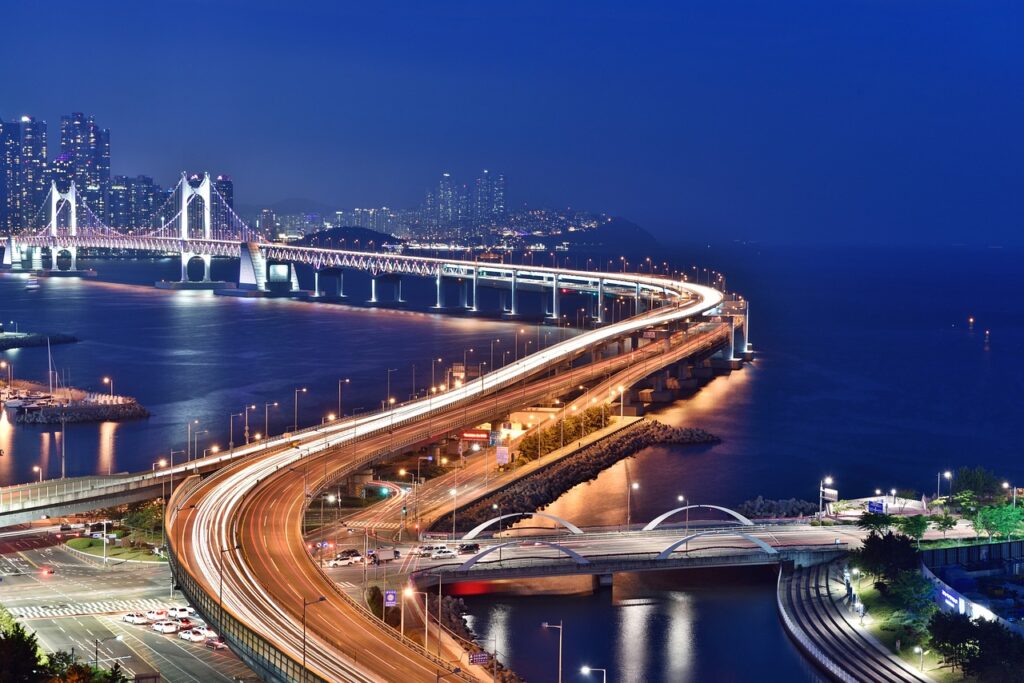
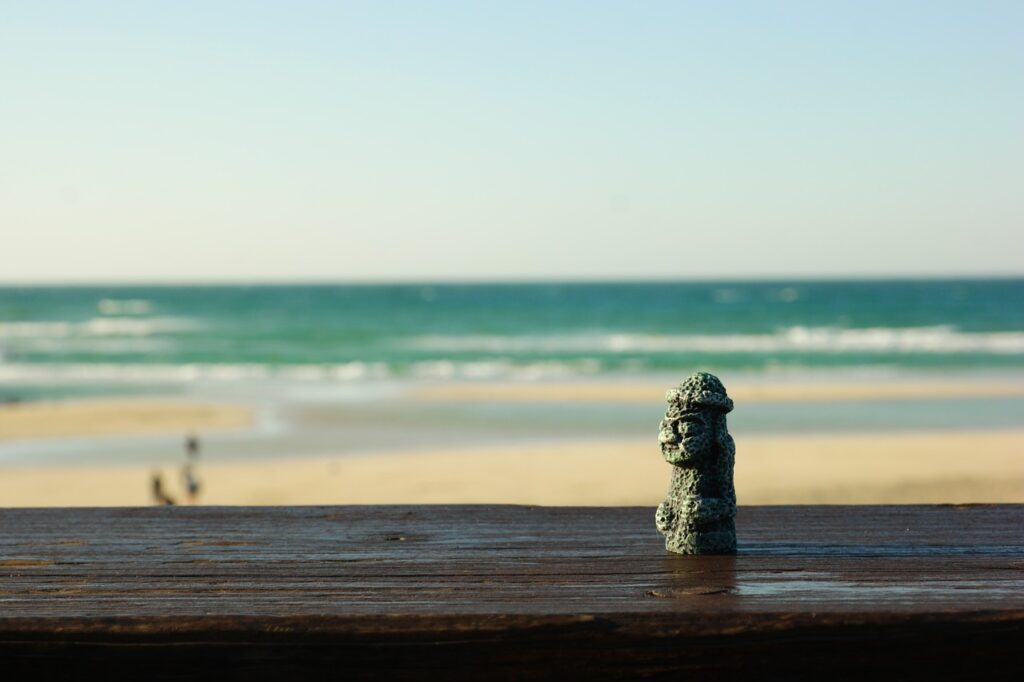
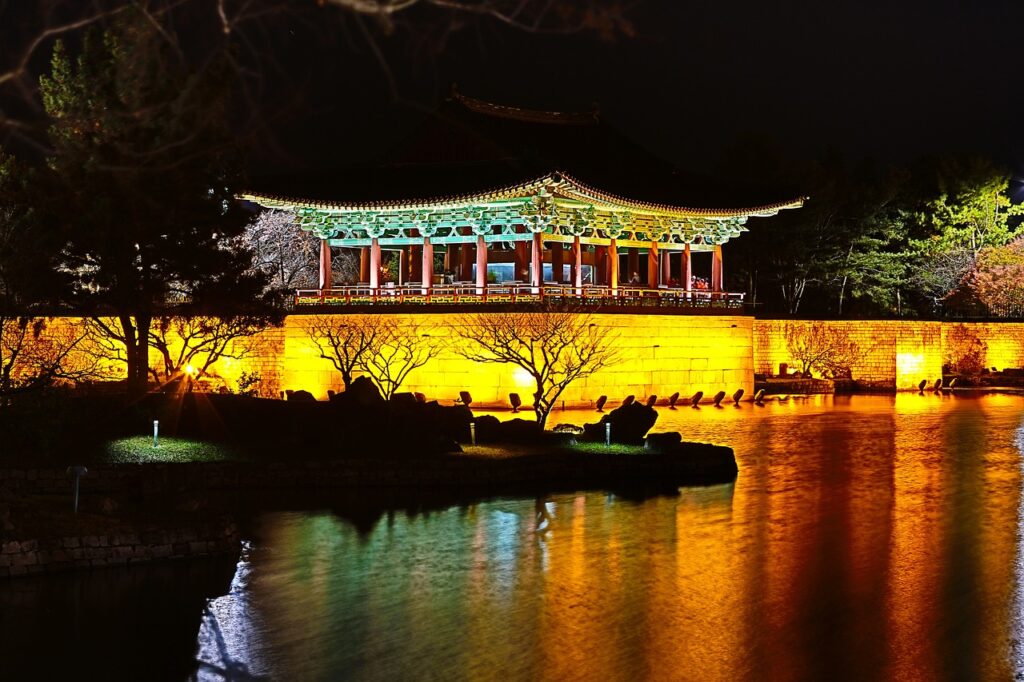

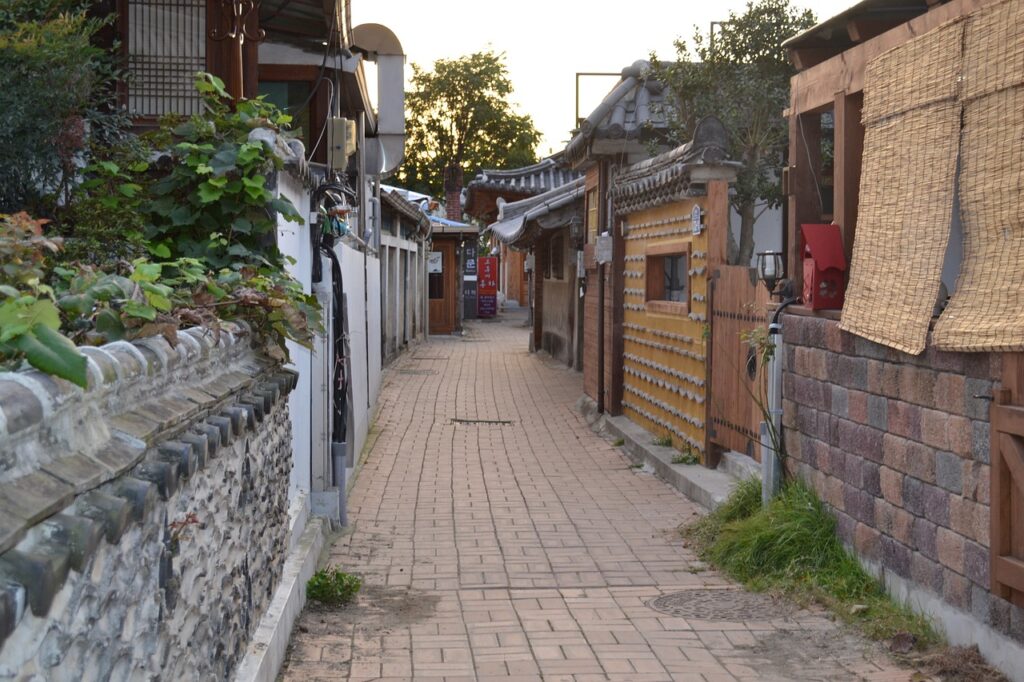
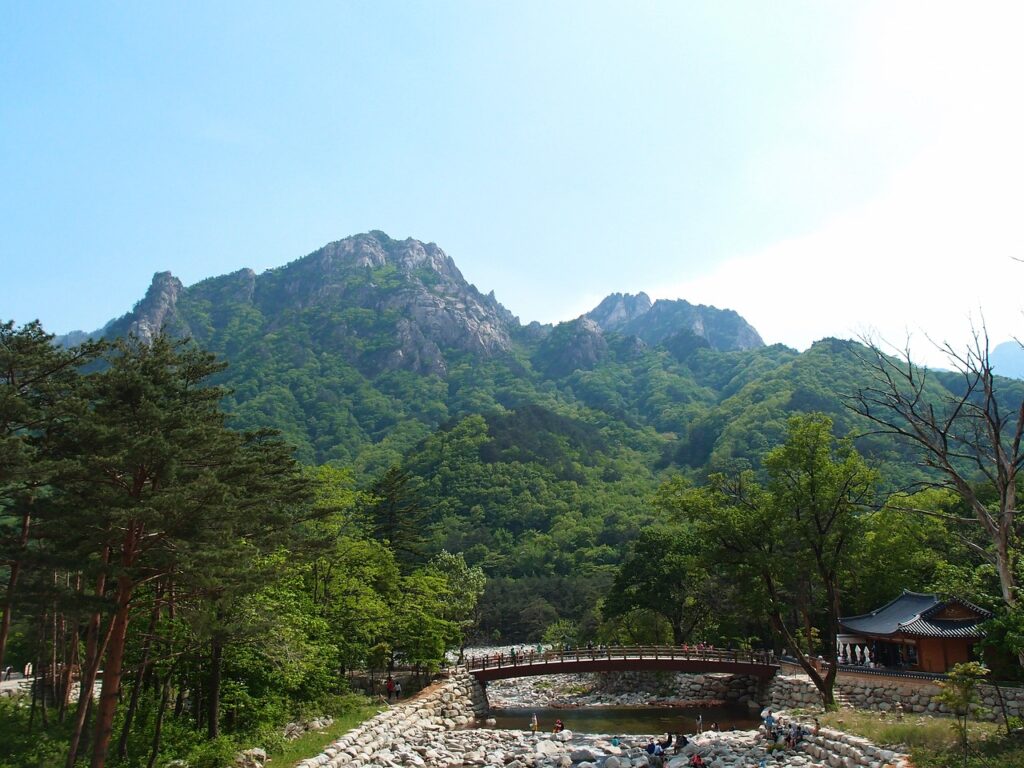
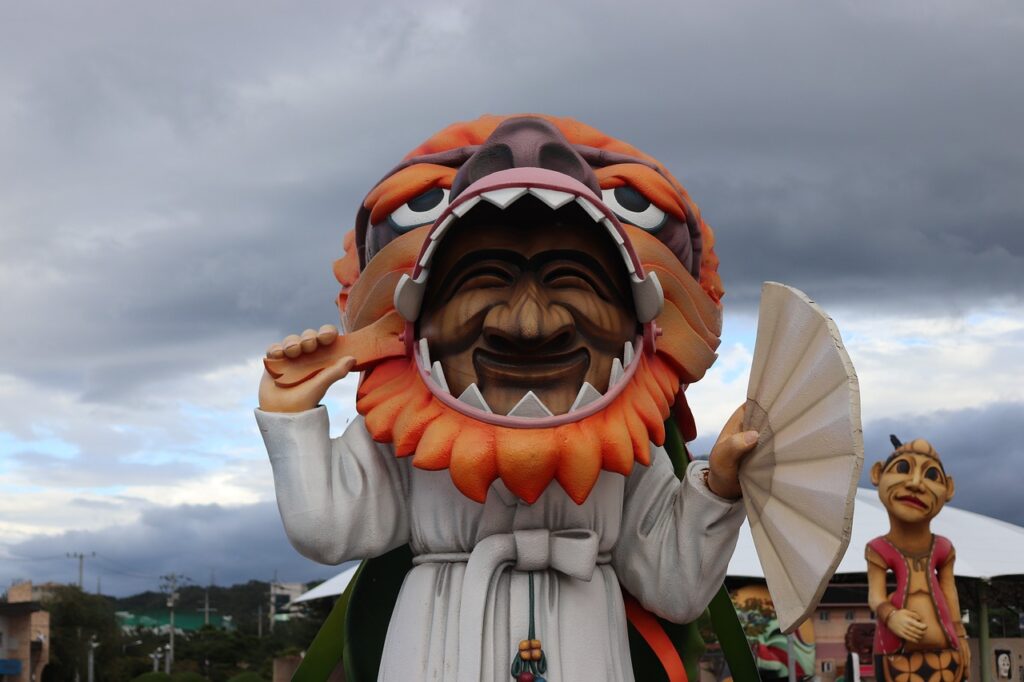
- Seoul: The capital and heart of South Korea, blending modern skyscrapers with ancient palaces and temples.
- Busan: The second-largest city, known for its beaches, seafood, and the famous Gamcheon Culture Village.
- Jeju Island: A popular holiday destination with unique volcanic features, beautiful beaches, and outdoor activities.
- Gyeongju: Often called “the museum without walls” due to its abundance of historical sites from the Silla Dynasty.
- Incheon: A major port city known for its modern architecture, Chinatown, and proximity to Seoul.
- Jeonju: Famous for its historic district, traditional food (especially bibimbap), and Korean paper (hanji) making.
- Sokcho: A coastal city near Seoraksan National Park, known for its beaches and as a gateway to hiking adventures.
- Andong: The cultural capital of Korea, famous for its folk village and traditional mask dance performances.
Suggested itineraries
Classic South Korea (10 days)
- Seoul (4 days):
- Explore Gyeongbokgung and Changdeokgung Palaces
- Visit Namsan Seoul Tower and Bukchon Hanok Village
- Shop in Myeongdong and experience Hongdae nightlife
- Busan (3 days):
- Relax at Haeundae Beach
- Visit Gamcheon Culture Village and Jagalchi Fish Market
- Take in the views from Busan Tower
- Gyeongju (2 days):
- Explore Bulguksa Temple and Seokguram Grotto
- Visit Cheomseongdae Observatory and Tumuli Park
- Seoul (1 day): Return for departure
Nature and Culture Explorer (2 weeks)
- Seoul (3 days): As described in the first itinerary
- Sokcho & Seoraksan National Park (3 days):
- Hike in Seoraksan National Park
- Visit Sokcho Beach and Abai Village
- Andong (2 days):
- Explore Hahoe Folk Village
- Watch Andong Mask Dance Performance
- Gyeongju (2 days): As described in the first itinerary
- Busan (2 days): As described in the first itinerary
- Jeju Island (3 days):
- Hike Hallasan Mountain
- Visit Seongsan Ilchulbong Peak and Manjanggul Cave
- Relax on Hyeopjae Beach
K-Culture Immersion (10 days)
- Seoul (5 days):
- Previous Seoul activities, plus:
- K-pop dance class
- Visit to a K-drama filming location
- Attend a K-pop concert or music show recording
- Jeonju (2 days):
- Stay in a traditional hanok
- Take a Korean cooking class focusing on bibimbap
- Try on hanbok (traditional Korean clothing)
- Busan (3 days):
- Previous Busan activities, plus:
- Visit Busan International Film Festival Square
- Enjoy street food at BIFF Square
Off the Beaten Path (2 weeks)
- Combine elements from the above itineraries and add:
- Gangneung (2 days):
- Visit Jeongdongjin, known for its sunrise views
- Explore Ojukheon House, birthplace of the famous Confucian scholar Yi I
- Boseong (1 day):
- Tour the beautiful green tea fields
- Suwon (1 day):
- Explore Hwaseong Fortress, a UNESCO World Heritage site
- Tongyeong (2 days):
- Take a cable car to Mireuksan Mountain
- Visit Dongpirang Wall Painting Village
Remember, these itineraries are just starting points. South Korea’s efficient public transportation system makes it easy to explore the country, but be prepared for potential language barriers outside major tourist areas. Don’t forget to try the diverse and delicious Korean cuisine, experience a traditional jjimjilbang (public bathhouse), and perhaps even catch a K-pop performance or baseball game. Whether you’re interested in history, nature, modern culture, or culinary adventures, South Korea offers a wealth of experiences that will leave you with unforgettable memories!
Travel Documents
- Passport: Ensure your passport is valid for at least six months beyond your intended stay in South Korea.
- Visa: Many nationalities, including citizens from the U.S., EU, Canada, and Australia, can enter South Korea visa-free for up to 90 days for tourism. If you’re staying longer or visiting for business or study, you’ll need to apply for a visa.
- K-ETA: Some travelers need to apply for the K-ETA (Korea Electronic Travel Authorization) online before arrival, depending on your nationality. Check the latest requirements based on your country.
Entry Requirements
- COVID-19: South Korea has relaxed most COVID-19 restrictions, but it’s best to check current policies before your trip. You may need proof of vaccination or a negative test.
- Customs and Declarations: South Korea has strict regulations on items like food, plants, and agricultural products. If carrying large amounts of cash (over USD 10,000), you’ll need to declare it.
Health Conditions
- Vaccinations: No specific vaccinations are required, but routine vaccines such as tetanus, hepatitis A, and hepatitis B are recommended. If you’re planning to spend time in rural areas or hiking, consider a Japanese encephalitis vaccination.
- Air Quality: South Korea can experience high levels of air pollution, especially in cities like Seoul. Be aware of daily air quality reports and consider wearing a mask on days with high pollution levels.
- Medical Services: South Korea has excellent healthcare, with many hospitals in cities like Seoul offering modern facilities and English-speaking staff. It’s recommended to have travel insurance to cover medical emergencies and healthcare expenses.
Currency and Payment Methods
- Local Currency: The official currency is the South Korean Won (KRW). You’ll want to have some cash for smaller transactions, especially in rural areas or markets.
- Credit and Debit Cards: Credit cards (Visa, Mastercard, and AMEX) are widely accepted in cities, especially in restaurants, hotels, and department stores. However, some smaller establishments, markets, or rural areas might only accept cash.
- ATMs: ATMs are common throughout the country, but not all accept foreign cards. Make sure you use ATMs marked for international withdrawals. Be mindful of transaction fees.
Language and Culture
- Language: The official language is Korean, but many younger South Koreans, especially in big cities, can speak some English. It’s helpful to learn a few basic phrases in Korean like “Annyeong haseyo” (Hello) and “Kamsahamnida” (Thank you).
- Cultural Etiquette: South Korea has a deep-rooted culture of respect and hierarchy. Bowing when greeting, accepting and offering items with both hands, and using polite language (honorifics) are common. Avoid speaking too loudly or using casual gestures in formal settings.
- Social Customs: Respect for elders is a key value in Korean culture. When dining, wait for the eldest person to start eating first. Additionally, tipping is not customary in South Korea, but leaving small tips in high-end restaurants or hotels may be appreciated.
Safety
- General Safety: South Korea is considered one of the safest countries in the world, with low crime rates. You can safely walk around cities at night, but it’s always wise to stay alert, particularly in crowded places where pickpocketing can occur.
- Natural Hazards: South Korea has occasional typhoons, especially during the summer and early fall. The country is also prone to occasional tremors or earthquakes, although severe ones are rare.
Weather and Clothing
- Four Seasons: South Korea experiences distinct seasons. Spring (March–May) and autumn (September–November) are the best times to visit, with pleasant weather and beautiful blossoms or fall foliage. Summers (June–August) can be hot, humid, and rainy, while winters (December–February) are cold, especially in the north.
- What to Pack: Pack according to the season. Light, breathable clothes for summer, warm layers for winter, and waterproof clothing for the rainy season. Bring comfortable shoes for exploring cities and hiking, as South Korea is a very walkable country.
- Sun Protection: During the summer months, UV levels can be high, so bring sunscreen, sunglasses, and a hat.
Transportation
- Subways and Trains: South Korea’s public transportation system is highly efficient. The subway system in cities like Seoul, Busan, and Daegu is fast, affordable, and easy to navigate with signs in English. The KTX high-speed train is a quick and comfortable way to travel between major cities like Seoul and Busan.
- Taxis: Taxis are widely available and relatively affordable. Be aware that not all taxi drivers speak English, so it’s helpful to have your destination written in Korean or use a translation app.
- T-Money Card: Purchase a T-Money Card for convenience; it can be used on buses, subways, and taxis, and can be recharged at convenience stores.
- Domestic Flights: South Korea has several low-cost airlines for domestic flights between cities, but most areas can be accessed easily by train or bus.
- Car Rentals: While car rentals are available, driving in South Korea can be challenging due to traffic and parking limitations in cities. Public transport is usually a more convenient option.
Accommodation
- Hotels and Hostels: South Korea has a wide range of accommodations, from luxury hotels in cities like Seoul and Busan to affordable hostels and guesthouses. Major hotel chains and boutique hotels are readily available.
- Hanok Stays: For a unique cultural experience, consider staying in a hanok, a traditional Korean house. These are common in historic areas like Bukchon Hanok Village in Seoul or Gyeongju.
- Jjimjilbangs (Bathhouses): South Korea’s jjimjilbangs offer affordable overnight stays, allowing you to experience traditional saunas and communal baths.
Internet and Telephony
- SIM Cards: You can purchase a prepaid SIM card for data and local calls at the airport or from providers like SK Telecom, KT, or LG U+. Consider getting one with unlimited data if you rely heavily on your phone for maps and communication.
- Wi-Fi: South Korea is known for its fast and reliable internet. Free Wi-Fi is widely available in hotels, cafes, and even public spaces like subway stations. You may also rent a portable Wi-Fi device.
- Electricity: South Korea uses 220V and Type C and F plugs (the same as in Europe), so travelers from other regions may need a plug adapter.
Working Hours and Public Holidays
- Business Hours: Shops, malls, and restaurants typically open from 10:00 a.m. to 9:00 p.m. Businesses tend to close later in the evenings, especially in bigger cities.
- Public Holidays: Be aware of public holidays, as some tourist attractions or businesses may be closed:
- Seollal (Lunar New Year): Celebrated in January or February.
- Chuseok (Harvest Festival): Celebrated in September or October.
- Independence Movement Day: March 1.
- Peak Travel Times: During holidays like Seollal and Chuseok, locals often travel to visit family, leading to busy roads, full trains, and booked accommodations, so plan accordingly.
Tipping
- Tipping is not customary in South Korea. Most restaurants, cafes, and taxi services do not expect tips. High-end hotels and international restaurants might include a service charge, but leaving extra gratuity is not expected.
Final Tip
South Korea is a country that balances ancient traditions with cutting-edge technology. Whether you’re strolling through historic palaces, hiking scenic mountains, or enjoying the fast-paced city life, South Korea offers an immersive and memorable travel experience. Embrace the local culture, indulge in the amazing food, and take time to explore both the bustling cities and serene countryside for a well-rounded trip.
